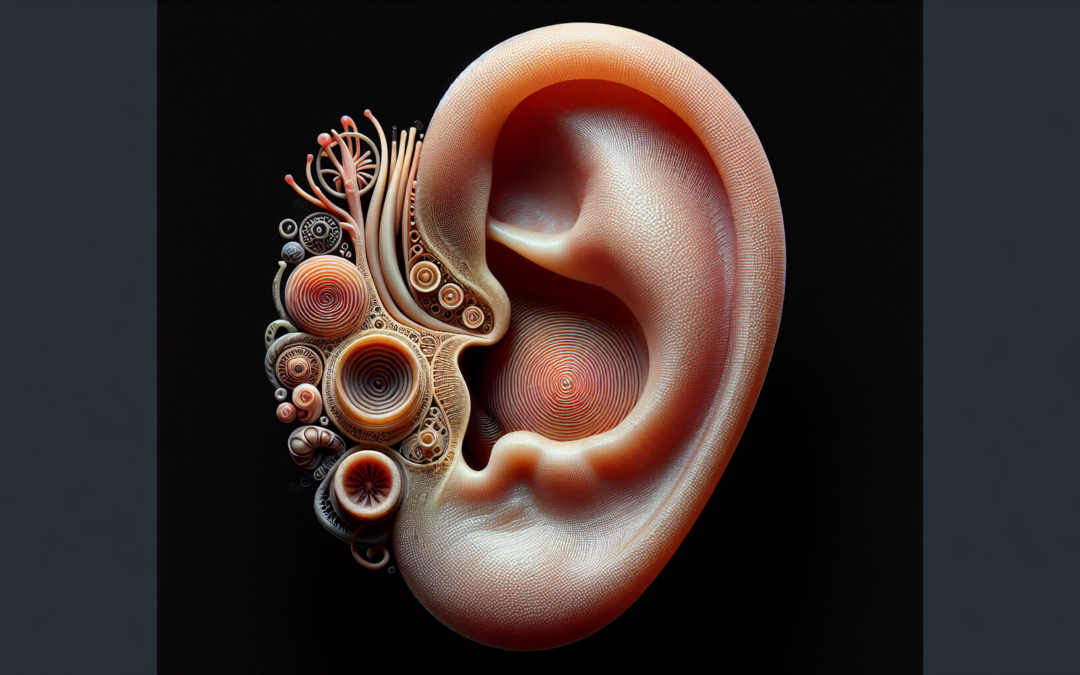Have you ever wondered about the potential connection between COVID-19 and hearing loss? Well, recent studies have shed light on this intriguing topic, revealing a possible link between the virus and auditory impairments. As researchers continue to delve into the long-term effects of COVID-19, understanding the potential impact on our hearing health has become increasingly important. In this article, we will explore the latest findings and delve into the possible mechanisms behind this unexpected association. So, grab a cup of tea, make yourself comfortable, and let’s unravel the fascinating connection between COVID-19 and hearing loss together.
Understanding the Link Between COVID-19 and Hearing Loss
Overview of COVID-19
COVID-19, caused by the novel coronavirus SARS-CoV-2, has had a significant impact on individuals’ health and wellbeing globally. Since its emergence in late 2019, the virus has spread rapidly, leading to a range of symptoms and complications. While much attention has been focused on its effects on the respiratory system, emerging evidence suggests a potential link between COVID-19 and hearing loss.
Introduction to Hearing Loss
Hearing loss is a prevalent sensory impairment that affects millions of individuals worldwide. It can occur due to various factors, including aging, noise exposure, genetic predisposition, and underlying health conditions. The impact of hearing loss can be significant, affecting an individual’s quality of life, communication abilities, and mental well-being.
Evidence of COVID-19 and Hearing Loss Connection
Preliminary studies and anecdotal reports have highlighted a potential association between COVID-19 infection and hearing loss. Researchers have documented cases where individuals experienced sudden hearing loss or a worsening of existing hearing impairments shortly after contracting COVID-19. While more studies are required to establish a definitive link, these observations suggest a possible correlation that warrants further investigation.
Mechanisms of Hearing Loss in COVID-19 Patients
The mechanisms underlying hearing loss in COVID-19 patients are not yet fully understood. However, several theories have been proposed. One hypothesis suggests that the virus may directly invade the auditory system, leading to inflammation and damage to the delicate structures of the inner ear. Another theory proposes that COVID-19-induced inflammation and blood clotting may disrupt blood flow to the cochlea, the sensory organ responsible for hearing, resulting in hearing loss.
Prevalence and Severity of Hearing Loss
The prevalence and severity of hearing loss among COVID-19 patients vary widely. While some individuals experience only mild or temporary hearing difficulties, others may suffer from more severe or permanent impairments. It is important to note that not all individuals infected with COVID-19 will develop hearing loss. Nevertheless, even a small percentage of cases could have significant implications for public health if the link is confirmed.
Risk Factors for COVID-19-Related Hearing Loss
Several risk factors have been identified that may increase the likelihood of developing COVID-19-related hearing loss. These include advanced age, pre-existing hearing impairments, severe COVID-19 symptoms, and complications such as blood clotting disorders. Understanding these risk factors can help healthcare professionals identify individuals who may be more susceptible to hearing loss and provide appropriate care and support.
Long-term Effects of COVID-19 on Hearing
The long-term effects of COVID-19 on hearing are still not fully known. Some individuals may experience a complete recovery of their hearing, while others may continue to have residual hearing difficulties even after the virus has cleared. Additionally, there is a concern that COVID-19-related hearing loss may lead to further social and emotional challenges, such as increased feelings of isolation and communication difficulties.
Possible Treatments and Management Strategies
Currently, no specific treatment for COVID-19-related hearing loss exists. However, early intervention and management strategies can help mitigate the impact of hearing loss and enhance the individual’s quality of life. These may include the use of hearing aids, assistive listening devices, communication techniques, and counseling support. It is crucial for individuals experiencing hearing loss after COVID-19 to seek professional evaluation and guidance from qualified audiologists or otolaryngologists.
Prevention and Protection Guidelines
While the exact prevention of COVID-19-related hearing loss remains uncertain, adhering to established guidelines for preventing COVID-19 transmission can help reduce the risk of infection and potential complications. These guidelines include frequent handwashing, wearing face masks, practicing physical distancing, avoiding large gatherings, and getting vaccinated when eligible. By prioritizing one’s overall well-being and following recommended precautions, individuals can potentially reduce the likelihood of experiencing hearing loss as a result of COVID-19.
Conclusion
In conclusion, emerging evidence suggests a possible link between COVID-19 and hearing loss. While further research is needed to fully understand the mechanisms and implications of this connection, individuals should be aware of the potential impact on their auditory health. Seeking prompt medical attention if experiencing hearing difficulties after COVID-19 infection is essential, as early intervention and management strategies can help mitigate the effects of hearing loss. Additionally, following preventive measures to reduce the risk of COVID-19 transmission is crucial for overall well-being, including auditory health.



